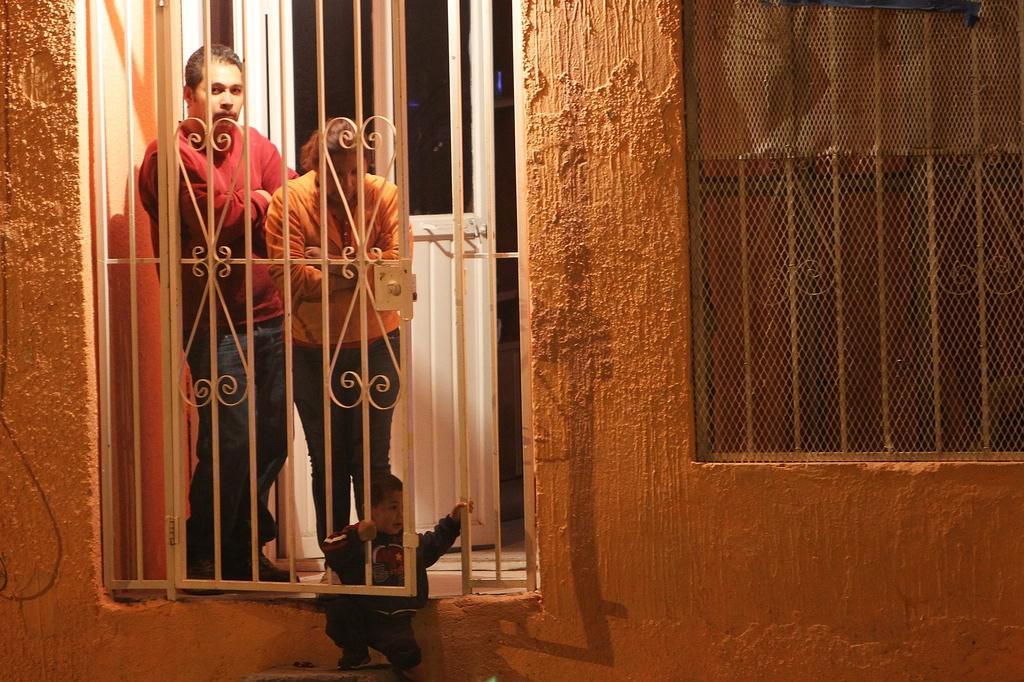Mexico’s drug-war refugees
Some Mexicans feel trapped between corrupt police and drug cartels.
MEXICO CITY, Mexico — When cameraman Alejandro Hernandez was kidnapped covering a drug cartel story, tied to a chair, half starved and beaten across the head, he prayed that Mexican police would rescue him.
Yet when the thugs finally released him after a week and he wandered into a federal police patrol, he felt he had stumbled out of the frying pan and into the fire.
Rather than putting the injured Hernandez in a hospital, the federal police took him unwittingly to a news conference. The police wanted to show that they were winning the war on drugs, but Hernandez feared that he had been outed as a potential witness against the cartel.
From Mexico: Paying bribes to survive
Fearing for his life, Hernandez, a 44-year-old father, fled over the Rio Grande to El Paso and filed for political asylum — a request that was finally granted last month after a year of waiting.
“He was stuck between the cartel and the federal police,” Carlos Spector, his attorney, told GlobalPost. “He had such a strong case, it was impossible for the asylum officer to turn him down.”
Hernandez is one of a rising number of Mexicans filing for political asylum in the United States as a result of the drug war raging across their homeland.
From Mexico: Violence comes for civilians
In 2006, when President Felipe Calderon was elected and declared a crackdown on drug cartels, 2,818 Mexicans filed for asylum in the United States — up from 2,670 in 2005. Last year, the number rose to 3,231 cases. Lawyers say that this year the number will be much higher still, especially since applicants like Hernandez have been approved.
“I’m getting five or six Mexican applicants coming into my office everyday with new cases, almost all connected to the drug war,” said Spector, who works in El Paso, just over the river from murder capital Ciudad Juarez.
“For a long time, Mexicans were discouraged about filing for asylum as judges so often turned them down. But the new cases are extremely strong because the situation is so crazy in Mexico right now.”
U.S. judges have traditionally been tougher on Mexican asylum applicants than those from other countries.
Last year, only 49 of the Mexican applicants — or 2 percent of the total — were granted asylum. In contrast, judges gave asylum to 3,795 of China’s 10,087 applicants — nearly 38 percent. Judges also granted asylum to the majority of applicants from Armenia — 206 out of 232 applications.
Immigration lawyers say that the judges have been reluctant to approve Mexican applications because they fear that granting asylum could open the floodgates to tens of thousands more applicants.
There are already 12 million Mexican nationals living in the United States — about half without papers, according to the Pew Hispanic Center.
However, the level of violence in Mexico is forcing judges to open the door to asylum further.
Before the drug war escalated from 2006, Mexican applicants applying for asylum were typically gays who said that they were persecuted because of their sexuality.
From Mexico: Mexico's billionaire brawl
Now applicants say they fear being killed by cartel gunmen. There have been 40,000 drug-related murders since 2006.
To gain political asylum, applicants have to prove they suffer persecution because they are part of a particular social group or because of their political or religious beliefs.
In the case of the cameraman Hernandez, his lawyer maintained that he was attacked specifically for his work for the TV network Televisa — making him part of the social group of journalists.
“He was covering a story that the Sinaloa cartel did not want reported,” it says in his case documents, filed before the federal immigration court in El Paso.
Hernandez was kidnapped in the state of Durango in July 2010, as he was reporting on how prisoners in a state penitentiary had left their cells to carry out massacres, and then returned to the jail.
“The political situation in Mexico is so surreal that American judges struggle to understand it,” Spector, the lawyer, said. “But the facts are irrefutable.”
Other asylum seekers have proven that they are being directly persecuted by the security forces sent to crack down on the drug gangs.
Cipriana Jurado, a 46-year-old human-rights activist from Ciudad Juarez, was granted asylum this year on the grounds that she was in danger from the Mexican military.
Jurado had worked with Amnesty International on the case of two young men alleged to have been kidnapped and murdered by soldiers sent on the streets to fight drug gangs.
“I fear the cartels, but I fear the Mexican military more,” Jurado told GlobalPost. “The soldiers have killed many innocent people, and any human-rights workers who stand in their way are in great danger.”
The Mexican Defense department has promised to punish any troops found guilty of wrongdoing, and dozens of soldiers involved in the drug war have been court-martialed on homicide charges.
From Mexico: Decoding Mexico’s murder mayhem
However, several other human-rights workers have been shot dead in Juarez this year in crimes that have yet to be solved.
Amid this bloodshed, Jurado predicts that many more activists across Mexico will flee the country.
“Perhaps we will never be able to return to our homeland, and this is very sad,” Jurado said. “I miss many things about Mexico. But what is happening there now is truly tragic.”
We want to hear your feedback so we can keep improving our website, theworld.org. Please fill out this quick survey and let us know your thoughts (your answers will be anonymous). Thanks for your time!
